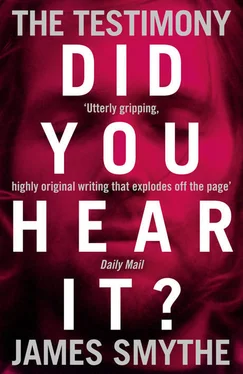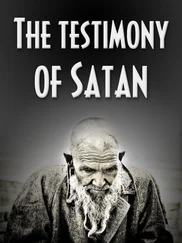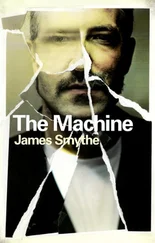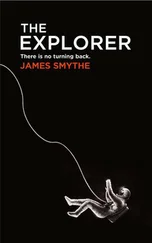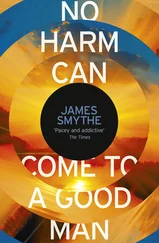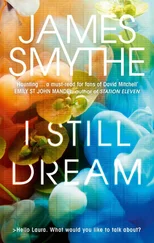Meredith Lieberstein, retiree, New York City
Leonard was so angry when the news started showing the British Deputy Prime Minister – apparently they were having some trouble with the real one, disappeared somewhere, the newsreaders said – when they showed him saying that the UK didn’t support our President’s decision to attack Iran. Leonard was so, so angry. I can’t believe that we asked for their help, he shouted, this situation shouldn’t have even existed! How dare we beg other people to get into this mess with us!
New York was different to the rest of the US anyway, because we have a thing about terrorism. We band together in times of national stress; it’s what makes us unique, and that always appealed to Leonard, that New Yorkers had this built-in sense of a sort of protective morality . They’ll all know this is wrong, he said to me. I should organize something to show the government what we think of them. We were all too aware of the protests – which had turned to riots across the globe, as the situation in Moscow had shown – but Leonard wanted to make this one different. He went onto his blog – he kept a political blog, which I gather quite a few people used to read – and he started planning. As far as I was concerned it was a good project for him, something to keep him busy.
I snuck out and went to the synagogue. It was so busy that I couldn’t actually get in for the service, so I had to join the queue to get into the next one along. Apparently they were going to start doing blessings on the lawns of Central Park, just to fit everybody in, as if it were some sort of rock festival, and the rabbis were playing guitars with their teeth.
Isabella Dulli, nun, Vatican City
Nobody missed me when I was down in the tomb, and it wasn’t until somebody came down to pray to St Peter that they realized I was there. The lights came on and woke me up. I was sleeping in the dirt on the floor, so close to Him, trying to get closer. Sister Dulli, are you okay? It was one of the Cardinals, one I didn’t really know, but he knew my name. He was Spanish, I think, and he spoke to me in creaky Italian that I had to strain to understand. Let me help you up. He was older than I was, and frailer; I think I remember that he had ill health, something to do with his breathing. He wheezed, certainly, all that dead air down in the tomb. He tried to let me use him to pull myself to my feet, but I did most of the work myself, truth be told. How long have you been down here? He seemed genuinely concerned. Not long, I said. He didn’t ask why I was there; when I was upright he leaned back against one of the guard railings that we put up to keep the tourists back. It’s amazing, isn’t it? To think that this is all validated now.
What do you mean? I asked him, and he smiled. Well, you know. People say you’re insane for believing this. The last few years, you know how it’s been. Harder to follow Him, eh? The Cardinal must have seen my face then, whatever I looked like. It wasn’t harder for you, I understand. Faith is all subjective, eh? You didn’t believe? I asked. He shook his head. No, no, I did. Something is lost in the translation, I think. I believed, but there was always a worry, a wonder. A question, eh? He smiled, because he thought that this was normal, but I wanted to shake him, tell him that I never questioned it. And The Broadcast , it wasn’t validation, it was a lie. Evidence isn’t a voice in the darkness, I said, you can’t really believe that it is. No, he said, of course not, of course not. We both stood in and looked at the tomb, at the other graves that they unearthed over the years, until I couldn’t stand it any more. I need to get fresh air, I said. He nodded. It’s a wonderful day, he said. I didn’t reply.
Outside, the light was so much brighter than I expected, and it took me a few seconds there, in the Basilica itself, to get accustomed. It was so busy, people crowding like they did in the queues outside, like they did when there was a mass or the Pope’s birthday, or even a new Pope’s address, when they spoke to the people for the first time and told them that they were God’s chosen one, His representative here, His heart, His voice. I couldn’t see for them for the first few seconds before they parted briefly, and the light from behind the Baldaccino was so bright. Everybody was singing hymns again, but it all dropped away. They listened for the voice, for that blunt reassurance; I saw the light of the Lord, and that was all I needed. I fell to my knees and wept; they crowded me, putting their arms around me. We know, they said, it’s a miracle, a miracle. You don’t know, I told them, don’t tell me what you think you know.
Audrey Clave, linguistics postgraduate student, Marseilles
France was in really good shape, actually. Before The Broadcast we were sort of a joke, I think, sitting in the middle of Europe, just bloated and holding all these other places together, like a hub. And as people, we have a reputation. But we only had a couple of days of looting and the suicides, no different to everywhere else, and then we recovered and settled down. We didn’t have the panic that the Americans had, shutting down all their transport links, shutting schools and malls; we just got on with it. Jacques and I decided that we should go on a date, because I couldn’t stop thinking about Patrice, thinking about if I could have stopped him. You need cheering up, Jacques said, we should go and get some dinner. He knew just the place, apparently, down in L’Estaque, past the port itself, right by the seafront. We got a table by the window – business was slow everywhere still, that much hadn’t recovered, so we got one of the best tables easily – and we watched some of the ships, the fishermen off as if this all never happened, and we ate mussels and fries and drank this strong pear cider that Jacques loved. We spoke about The Broadcast , because it was still so there , and so important. Jacques liked to debate about it, talk about the possibilities, what it could mean. We were totally hung up on the Americans attacking Iran that evening, the conversation being about America’s ownership – Jacques’ word – of The Broadcast . In many ways, he said, it’s like they’re actually saying that they own this version of God, you know? That’s typical of them, steam-rolling over everything.
There was a man behind us having dinner with his wife, and they were both stinking drunk when we arrived, not even started eating yet. Halfway through the meal she stopped drinking but he carried on, and I had to watch them the whole time whilst I tried to eat, watch him as he gulped at his wine, as he slopped cream sauce over his shirt. Our dessert had just arrived when he leaned over toward us. His wife tried to stop him, shooing him off, Don’t say anything, that sort of thing, but he leant in as far as his chair would let him. Hey, he said, so Jacques turned to look at him. Hey, you think everybody here will get into heaven? I don’t know, Jacques said. We’ll have to wait and see. Hey, no, listen, the man said; What I mean is, you think even you niggers will get in? You think that God will have a vetting policy, maybe, stop you getting in before you fuck all our women up there as well? He was looking at me when he said that, and that made Jacques even angrier. Shut up, Jacques told him. He gave him a chance. Hey, I know, the fat drunk said, why not just end it all now, see if you get in, and then you can let all your other brothers know, yeah? So Jacques stood up and punched him first, threw his fist into the man’s face before the manager ran over with a waiter and they pulled them off each other, pushed them both onto the street. I went to watch but the fat drunk’s wife didn’t bother.
Читать дальше
Конец ознакомительного отрывка
Купить книгу
